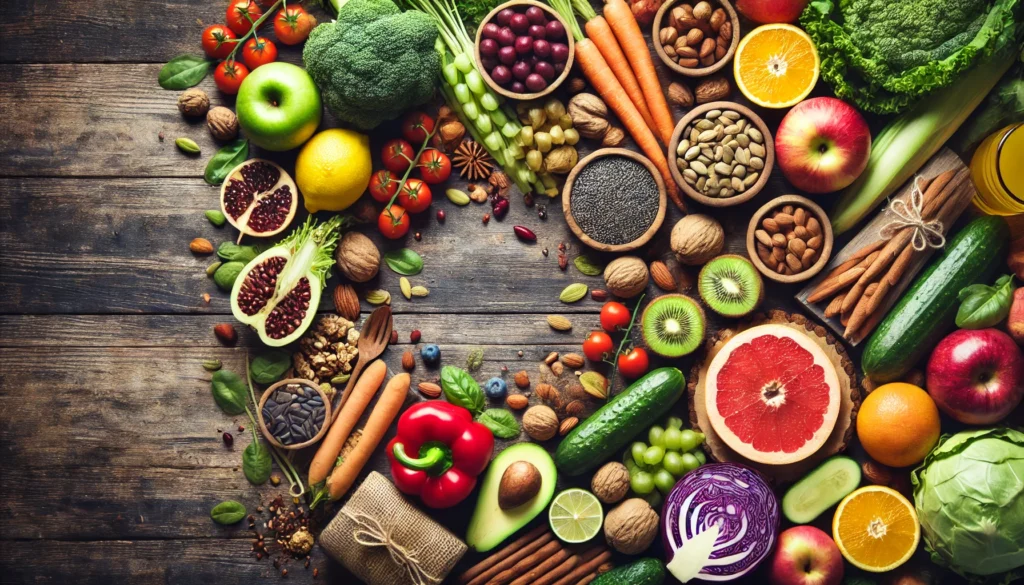Understanding the Foundations of Digestion Health
Optimal digestion is the cornerstone of overall well-being, influencing everything from nutrient absorption to immune function and even mental clarity. The human digestive system is a complex network of organs, enzymes, and microbiota working harmoniously to break down food, extract essential nutrients, and eliminate waste efficiently. However, modern dietary habits, stress, and environmental factors often disrupt this balance, leading to discomfort and inefficiencies in digestion. Addressing these challenges requires a holistic approach that includes mindful eating, lifestyle modifications, and targeted supplementation with bioavailable nutrients.
You may also like: How to Improve Nutrient Absorption: Unlock the Benefits of Bioavailable Nutrients for Holistic Wellness
Bioavailability refers to the extent and rate at which nutrients are absorbed and utilized by the body. Many individuals take supplements for digestion health, but not all formulations are created equal. The body’s ability to derive benefits from nutrients depends on their bioavailability, which can be influenced by factors such as source, preparation, and the presence of co-factors that enhance absorption. By selecting the right bioavailable nutrients, one can significantly improve digestion health, ensuring that the body efficiently absorbs and utilizes essential compounds to support gut integrity, enzymatic function, and microbial balance.

The Role of Enzymes in Digestion and Nutrient Absorption
Digestive enzymes are specialized proteins that catalyze the breakdown of macronutrients into smaller, absorbable components. These enzymes are produced naturally by the body, primarily in the pancreas and small intestine, but various factors such as aging, chronic stress, and poor dietary choices can lead to enzyme insufficiency. When this occurs, digestion can become sluggish, leading to bloating, indigestion, and malabsorption.
Supplementing with digestive enzymes can be a game-changer for those experiencing discomfort after meals. Key enzymes include amylase, which helps digest carbohydrates; protease, which breaks down proteins; and lipase, essential for fat digestion. Bromelain, derived from pineapples, and papain, extracted from papaya, are natural enzymes that further aid in protein digestion, reducing the risk of bloating and food sensitivities. Ensuring these enzymes are in bioavailable forms enhances their efficacy, allowing for maximum absorption and digestive support.
Probiotics and Prebiotics: The Dynamic Duo for Gut Health
The gut microbiome plays a pivotal role in digestion and overall health, with trillions of bacteria residing in the intestines. These beneficial microbes aid in breaking down food, synthesizing essential vitamins, and maintaining immune function. However, an imbalance in gut flora—often caused by antibiotic use, poor diet, and stress—can lead to digestive issues such as constipation, diarrhea, and bloating.
Probiotics, or beneficial bacteria, help restore microbial balance and support digestion. Strains such as Lactobacillus acidophilus and Bifidobacterium bifidum are particularly effective in enhancing gut health. To maximize their benefits, selecting probiotic supplements with enteric-coated capsules ensures that these bacteria survive stomach acid and reach the intestines intact.
Prebiotics, on the other hand, are non-digestible fibers that serve as food for probiotics. Sources such as chicory root, garlic, and green bananas provide essential nourishment for beneficial bacteria, encouraging their growth and activity. By combining probiotics and prebiotics in a balanced manner, one can create a thriving gut environment that supports digestion health and enhances nutrient absorption.
The Importance of Fiber for Digestive Regularity
Dietary fiber is an essential component of a well-functioning digestive system. It comes in two primary forms: soluble fiber, which dissolves in water and forms a gel-like substance, and insoluble fiber, which adds bulk to stool and promotes regularity. Both types play crucial roles in maintaining gut health, preventing constipation, and supporting microbiome diversity.
Soluble fiber, found in oats, legumes, and apples, slows down digestion and helps regulate blood sugar levels. Insoluble fiber, present in whole grains, nuts, and vegetables, speeds up the movement of food through the digestive tract, reducing the risk of bloating and discomfort. Ensuring adequate fiber intake, combined with sufficient hydration, can significantly enhance digestion health by promoting smooth bowel movements and reducing gastrointestinal distress.
Bioavailable Nutrients That Support Digestion Health
Certain vitamins and minerals play a direct role in digestion, supporting enzymatic activity, gut integrity, and microbial balance. Zinc, for example, is crucial for the production of digestive enzymes and the maintenance of gut lining integrity. Magnesium aids in muscle relaxation, ensuring smooth movement of food through the intestines and preventing constipation.
Vitamin B-complex, particularly B1 (thiamine) and B6 (pyridoxine), supports the body’s metabolic processes and aids in the breakdown of carbohydrates and proteins. Vitamin D is another essential nutrient, as it influences gut health by modulating immune responses and reducing inflammation. Ensuring these nutrients are in bioavailable forms, such as chelated minerals or methylated B vitamins, enhances their absorption and effectiveness in promoting digestion health.
The Role of Herbal Supplements in Enhancing Digestion
Herbal remedies have been used for centuries to support digestion and alleviate common gastrointestinal issues. Ginger, known for its anti-inflammatory and carminative properties, can reduce nausea and bloating while stimulating digestive enzymes. Peppermint oil is another powerful remedy that helps relax the digestive tract, reducing symptoms of irritable bowel syndrome (IBS) and indigestion.
Slippery elm and marshmallow root contain mucilage, a substance that coats and soothes the gut lining, providing relief from acid reflux and gastritis. Turmeric, rich in curcumin, offers anti-inflammatory benefits and enhances bile production, which is essential for fat digestion. Incorporating these herbal supplements into a holistic digestive health regimen can provide natural and effective support for gut function.
Hydration and Its Crucial Role in Digestion
Water is often overlooked in discussions about digestion, yet it plays a vital role in every stage of the digestive process. Adequate hydration ensures the smooth movement of food through the gastrointestinal tract, preventing constipation and supporting enzymatic activity. Drinking water before meals can aid in the initial breakdown of food, while warm beverages like herbal teas can further enhance digestion.
Electrolytes such as potassium and sodium help regulate fluid balance, ensuring that digestive processes function optimally. Coconut water and mineral-rich broths are excellent sources of natural electrolytes that support hydration and digestion. By prioritizing fluid intake, one can prevent common digestive complaints and promote overall gut health.

Frequently Asked Questions (FAQ) on Digestion and Nutrient Absorption
What helps your body absorb nutrients more efficiently?
The efficiency of nutrient absorption depends on several factors, including digestive enzyme production, gut microbiome balance, and food combinations. One of the most effective ways to absorb food better is to eat a variety of whole foods rich in vitamins, minerals, and enzymes that support digestion. Fermented foods like kimchi, kefir, and miso help cultivate beneficial gut bacteria, enhancing the GI tract absorption of nutrients. Additionally, consuming healthy fats like avocado and olive oil with fat-soluble vitamins (A, D, E, and K) increases body absorption of these essential nutrients. Proper hydration is also crucial, as water facilitates the breakdown and transport of absorbable nutrients throughout the body.
Where does most nutrient absorption occur in the body?
The main site of nutrient absorption is the small intestine, particularly the jejunum and ileum, which are lined with specialized tissue called villi and microvilli. These tiny projections dramatically increase surface area, maximizing absorption nutrition. While some nutrients like alcohol and simple carbohydrates begin absorption in the stomach, the majority—including proteins, fats, and vitamins—undergo enzymatic breakdown before being absorbed in the small intestine. Certain nutrients, such as vitamin B12 and bile salts, are specifically absorbed in the ileum, highlighting the complexity of the digestive process. If the health of this intestinal lining is compromised by inflammation, celiac disease, or infections, nutrient absorption can become impaired, leading to deficiencies.
Are nutrients absorbed in the stomach or elsewhere?
While digestion begins in the stomach, it is not the primary site for nutrient absorption. The stomach’s acidic environment primarily functions to break down proteins and kill harmful pathogens, preparing food for further digestion. Some substances, like alcohol and certain medications, are absorbed directly through the stomach lining, but most nutrients require enzymatic breakdown before absorption can take place. The real process of absorption occurs further along in the gastrointestinal tract, mainly in the small intestine. To enhance how to absorb nutrients better, supporting stomach acid levels through dietary choices and supplementation, such as apple cider vinegar or betaine HCl, can be beneficial.
How can you improve vitamin absorption naturally?
Improving vitamin absorption involves dietary choices, gut health maintenance, and proper supplementation techniques. Certain vitamins require specific conditions for optimal absorption—such as fat-soluble vitamins (A, D, E, and K), which should be taken with meals to enhance absorption when consumed alongside healthy fats. Vitamin C enhances iron absorption from plant-based sources, so pairing citrus fruits with leafy greens can help optimize iron levels. Probiotics and prebiotics play a significant role in digestive health, creating a balanced gut environment that fosters the absorption of nutrients in the GI tract. Chewing food thoroughly also aids in the breakdown of food particles, making vitamins more bioavailable for absorption.
What foods increase nutrient absorption and support digestion health?
Certain foods naturally enhance digestion health by promoting enzymatic activity, gut flora balance, and the efficient breakdown of food. Pineapple and papaya contain natural enzymes—bromelain and papain—that help digest proteins, improving body absorption of amino acids. Leafy greens such as spinach and kale are rich in magnesium, a mineral essential for enzyme activation and smooth muscle function in the digestive tract. Foods high in soluble fiber, such as oats and chia seeds, support slow nutrient absorption and stable blood sugar levels, while fermented foods strengthen gut bacteria to further improve nutrient absorption. Combining these foods strategically in meals helps the body maximize the intake of essential nutrients.
How does your body absorb nutrients from different food sources?
Nutrient absorption depends on the macronutrient composition of a meal and the digestive process involved. Carbohydrates are broken down into simple sugars by amylase enzymes and absorbed quickly in the small intestine. Proteins undergo digestion through stomach acid and protease enzymes before being absorbed as amino acids in the jejunum. Fats require bile acids for emulsification and are absorbed as fatty acids in the ileum, contributing to long-term energy stores and hormone production. Minerals such as calcium and magnesium compete for absorption, making it important to space out their intake. Understanding these interactions can help optimize how to increase nutrient absorption through meal planning and supplement timing.
How can you improve nutrient absorption for better overall health?
Improving nutrient absorption involves enhancing digestion efficiency and optimizing gut health. Stress management plays a crucial role, as chronic stress disrupts digestive enzyme production and slows gastric emptying, impairing absorption of nutrients in the GI tract. Eating mindfully, avoiding processed foods, and incorporating probiotic-rich foods can help create an environment where nutrients are better utilized. Another overlooked factor is meal timing—eating at consistent intervals ensures that digestive enzymes and bile acids are released efficiently, enhancing how to absorb nutrients better. Finally, reducing inflammation through an anti-inflammatory diet rich in omega-3 fatty acids and polyphenols can further improve nutrient assimilation and metabolic function.
What is the impact of hydration on digestion and nutrient absorption?
Hydration is critical for digestion, as water facilitates enzymatic reactions, bile production, and the breakdown of food into absorbable nutrients. Dehydration can slow gastric motility, leading to constipation and inefficient absorption nutrition. However, drinking excessive water with meals can dilute stomach acid and digestive enzymes, potentially impairing digestion. Sipping water throughout the day and consuming water-rich foods like cucumbers and melons can support hydration without disrupting the digestive process. Herbal teas such as ginger or peppermint tea can also aid digestion and promote body absorption of key vitamins and minerals.
How does gut health affect the body’s ability to absorb food better?
A healthy gut microbiome plays a crucial role in digestion health and nutrient absorption. Beneficial bacteria in the gut produce short-chain fatty acids that enhance intestinal integrity and regulate the absorption of nutrients. Dysbiosis, or an imbalance in gut bacteria, can lead to inflammation, poor digestion, and reduced ability to absorb food better. Prebiotic foods such as garlic, onions, and bananas help feed beneficial bacteria, while probiotics help replenish the gut flora. Ensuring a diverse diet rich in fiber and fermented foods supports optimal digestive function, reinforcing how to improve vitamin absorption naturally.
How can you support absorption of nutrients if you have digestive issues?
Individuals with digestive disorders, such as irritable bowel syndrome (IBS) or leaky gut syndrome, often struggle with nutrient deficiencies due to malabsorption. Taking targeted digestive enzymes, probiotics, and bile salts can help compensate for enzyme deficiencies and improve body absorption of critical nutrients. Incorporating easily digestible foods like bone broth, steamed vegetables, and lean proteins can reduce digestive stress while still providing essential vitamins and minerals. Identifying and eliminating trigger foods, such as gluten or dairy, can further optimize how to improve nutrient absorption. Working with a healthcare professional to assess specific deficiencies and tailor a digestive support plan can significantly enhance overall well-being.

Conclusion: Embracing a Holistic Approach to Digestion Health
Achieving optimal digestion health requires a multifaceted approach that combines mindful eating, lifestyle adjustments, and targeted supplementation with bioavailable nutrients. Digestive enzymes, probiotics, fiber, vitamins, and herbal remedies each play a unique role in supporting the body’s ability to break down and absorb nutrients efficiently. Hydration, stress management, and a balanced diet further contribute to overall gut wellness.
By selecting high-quality, bioavailable supplements and incorporating them into a daily routine, individuals can enhance their digestive function and experience long-term health benefits. Investing in digestion health not only improves nutrient absorption but also fosters overall vitality, mental clarity, and immune resilience. A well-nourished gut is the foundation of holistic wellness, and by making informed choices, one can unlock the full potential of digestive health and overall well-being.
digestive health, digestion support, bioavailable nutrients, nutrient absorption, gut health, how to improve digestion, what helps digestion, digestion supplements, probiotics for digestion, digestive enzymes, how to absorb nutrients better, GI tract absorption of nutrients, foods that increase nutrient absorption, improve vitamin absorption, body absorption, how to increase nutrient absorption, absorb food better, best supplements for digestion, what to take for digestion, absorption nutrition
Further Reading:
Unlocking Wellness: A Holistic Approach To Mind, Body And Spirit In The New Year
Unlocking Holistic Wellness: The Transformative Power of Mindful Practices
Unlocking the Secrets to Holistic Wellness: Your Ultimate Guide to a Balanced Life
Disclaimer
The information contained in this article is provided for general informational purposes only and is not intended to serve as medical, legal, or professional advice. While NewsHealthWatch strives to present accurate, up-to-date, and reliable content, no warranty or guarantee, expressed or implied, is made regarding the completeness, accuracy, or adequacy of the information provided. Readers are strongly advised to seek the guidance of a qualified healthcare provider or other relevant professionals before acting on any information contained in this article. NewsHealthWatch, its authors, editors, and contributors expressly disclaim any liability for any damages, losses, or consequences arising directly or indirectly from the use, interpretation, or reliance on any information presented herein. The views and opinions

